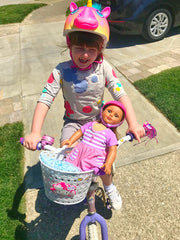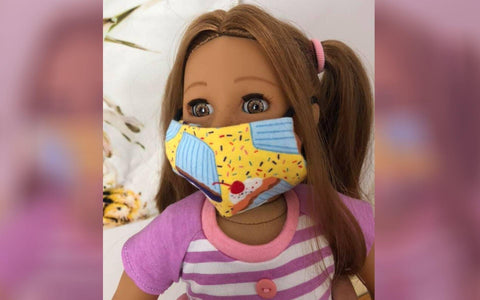Kindness In Children; What It Means And How To Teach It
As parents, we want our children to be kind. We want them to pick up on good habits and grow into friendly, helpful, and caring adults.
We encourage them to share and to do good deeds as often as possible. We discipline them for rudeness and try to teach them how to properly react in difficult situations.
But, let's face it. It's not always easy. We come home in bad moods and complain to our spouses about our days. Kids hear that. They pick up on negativity. They hear us yell at other drivers on the road and mutter choice words under our breath at the grocery store when someone cuts us in line.
What can we do, as parents, to permanently instill kindness in our children's' hearts? To ensure that they don't pick up on our negativity and turn it into their own world outlook?
In summary, there are many ways you can instill kindness in children, and it's very easy -- and fun! -- to teach.
Teaching Kindness To Children
Every act of kindness, no matter how big or how small, makes an impact on the world around us. Kindness is contagious, too. All it takes is one smile from one person to another to inspire and spread happiness in every possible direction.

So how can we teach kindness to children?
Lead by example. According to MindBodyGreen, the mirror neurons cells in our brains, the ones that wire us for imitation, are tremendously active during childhood. That said, when kids observe actions, their brains respond as if they're actually performing said action themselves. Interesting, right? Those actions are what stick in their heads and pave the way for future behavior.
Choose your stories wisely. I'm sure you remember lessons you've learned in books and TV shows you read and watched growing up. Or maybe you sometimes catch the moral of the story in movies your kids are watching. Either way, if it sticks with you, it sticks with kids even more. Whether you're at the library, searching for podcasts, or surfing your streaming devices, be sure to pick out stories with meaningful, kind acts sprinkled throughout as those are what kids will remember most and will want to duplicate.

Remember the power of a smile. I am guilty of RBF (resting B face for those not familiar). Some nights, I wonder if I even cracked a smile at all during the day. I'm making it my top effort to smile more often and to let my children see it. Smile at strangers, at store employees, at neighbors. One smile can turn someone's whole day around.
Teach them kindness with 18-inch dolls. Yes, playing with dolls helps kids learn how to be kind. Pretend play with 18-inch dolls teaches inclusiveness. By creating new roles in their play stories, children will be learning that including others and playing with them is a good thing. Pretend play also increases maturity. Role-playing will teach kids a lot about emotions, both expressing them and reacting.

Give more compliments. During a video shoot here at Playtime by Eimmie last year, we had a nine-year-old girl as our actress. She and I were waiting on the sidewalk on a street with heavy foot traffic in between shots and, honest to goodness, she complimented every single person that walked by. She didn't just say "I like your dog," or something simple that you'd assume kids would say. Instead, she gave heartfelt compliments like, "your hair color looks so great on you" or "those are the coolest shoes I've ever seen!" It may not sound like a lot, but the smiles that grew on everyone's faces as they received their compliments will stick with me forever. She was so kind to strangers, going out of her way to give them compliments that they may never hear. Since meeting her, I've tried to do the same when I see people out and about. Guess what? It's not always easy. If a nine-year-old can influence me to be better, imagine what we can do, as parents, for our kids.
What ways will you teach kindness to your child?



